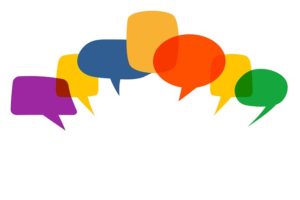
Empathic communication is not a new term, but it still needs a bit of clarification for true understanding. Although many people are aware that empathy is important, empathy and empathic communication skills are seldom held as a priority.
Nonetheless, practicing empathy daily is a great way of improving and enhancing your communication skills. Not to mention, empathic communication also calls for a healthy immediate environment and a better world.
While you may be focused on learning other skills that can help you professionally, empathy is beneficial in all areas of life. It helps you in personal relationships as well as professional ones.
Read on to explore what it means to learn empathy and how empathic communication skills can help create better connections.
What are Empathy and Empathic Communication?
Simply put, the term empathy refers to an individual’s ability to recognize and understand the emotions of others around them. It enables you to shift your perspective and see a situation from the other person’s point of view.
Once you successfully master your empathic communication skills, you can use empathy to support people and improve their mood during a rough time. Now, you might confuse empathy with sympathy.

Just because everyone is talking doesn’t mean real listening is happening.
However, the two are quite different values. Sympathy refers to feelings of concern and compassion for a fellow human. On the other hand, empathy does not involve emotions or shared perspectives.
While you can feel sympathy for a stranger, it is hard to be empathic in a short interaction. Nevertheless, sympathy can develop into empathy.
Empathy is also one of the five key components that make up emotional intelligence in humans. To effectively practice empathic communication, it is important to let your empathy grow through the stages of cognitive empathy, emotional empathy, and compassionate empathy.
Thus, empathic communication in households and workplaces allows a person to express that they are listening to and understand the thoughts and feelings of another person. This also includes recognition and understanding of opinions, values, and attitudes.
Although it is not easy to successfully understand the thought process of another person, empathic communication skills can prevent misjudgments and wrong assumptions.
Empathy – Perception, and Communication
To understand empathy from a psychological point of view, there are two components of empathy. These include empathic perception and empathic communication.
It is important to correctly perceive a thought, feeling, emotion, opinion, etc., to practice effective empathic communication skills. Communicating without proper perception can significantly decrease the empathic element in the situation. Not to mention, it can also adversely affect the conversation or even the relationship.
Findings from numerous studies suggest that faulty communication is the reason behind 90 percent of conflicts. Many people listen intending only to speak. This becomes an obstacle in correct empathic perception and then empathic communication, and hinders the practice of emotional intelligence.
The usual problems that hinder the growth and development of empathic communication are:
- Pretending to listen: People do not tend to listen truly. Rather, they are just nodding now and then.
- Listening selectively: Some other people are selective about what they want to pay attention to. They are mostly looking for fragments that require a debate or answer.
You can find other issues in how many people respond after listening to someone speak. Usually, you have at least one out of the following four reactions:
- Evaluation: This includes assessing the information to decide whether they agree or disagree with the person.
- Examination: Individuals ask questions from the perspective of the subjective person.
- Advising: You might have some advice that comes from experience or intelligence.
- Interpretation: Many people believe that they fully understand a situation, which might not necessarily be true.
Importance of Empathic Communication
Now that we know how empathy, empathic perception, and empathic communication works, let’s see why these are important values.
Promotes Interaction
Practicing empathic communication allows you to interact better and build new, stronger connections. When you can perceive another person’s perspective correctly, you are less likely to be hesitant about creating conversations. Empathic communication is rather healthy and leads to feelings of care and concern.
Creates an Encouraging Environment
Empathic communication allows you to understand the needs of others and respond in a much healthier manner. As you become more receptive to factors that affect others around you, you will likely develop behaviors that encourage connection and psychological safety.
Bottom Line
Although people communicate daily, they hardly ever feel heard, seen, and understood. This is usually due to a lack of interest and empathic communication skills. Empathy and its components of perception and communication can help eliminate such negative feelings.
p.s. – Want to develop more empathy or learn how to communicate better? Schedule a free no-obligation appointment directly in my calendar here. I look forward to our conversation!

Paul Strobl, MBA, CPC
Owner of Confide Coaching, LLC
Paul is a Master Life Coach for individuals, executives and business owners. Originally from Houston, Texas, he has been location independent for most of his adult life. He currently resides in the Rhodope Mountains of Bulgaria near the Greek border with his brilliant wife, 13-year-old stepson (officially adopted in 2021!) and a Posavac Hound rescue.

